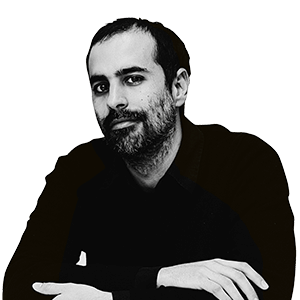Antonio Altarriba: "Politics has become a duel between liars"


BarcelonaMany readers know the screenwriter Antonio Altarriba (Zaragoza, 1952) thanks to his works with Kim on family memory, El ala rota and El arte de volar, National Comic Award in 2010. But there is another Antonio Altarriba: the observer who radiographs the moral miseries of society through black fictions full of formal daring such as Yo, Asesino and Yo, loco, in collaboration with the cartoonist Keko. Yo, mentiroso (Norma, 2020) completes this Trilogía del Yo with a story that delves into the sewers of power and Spanish politics.
Did you plan to make a trilogy from the get-go?
— No, the initial idea was to just make a comic, Yo, asesino. I had just retired after 38 years as a professor at the Universidad del País Vasco (University of the Basque Country), a very complicated job due to the presence of ETA sympathizers that forced many of my colleagues to leave. I wanted to explain what it had been like to endure the violence that the ETA sympathizers justified and reflect on the issue of evil and gratuitous violence, to look in the mirror and see if there is something murderous in all of us, if some murders can explain others. We used the resource of a narrative self that justifies and explains its actions and, in the middle of the book, we realized that this was a good resource, and that we could explain other evils of our time too.
Like the pharmaceutical industry, the topic of Yo, loco.
— Deep down I wanted to talk about the influence of large corporations, about how there are things in our daily lives that are decided in the offices of companies that not only sell products but also promote behaviors. Big Pharma weighs the health of the people and their economic benefit. And managers are clear: their business is not research or treatment, but marketing.
Yo, mentiroso does not focus on high politics but on spin doctors, people without political affiliation who move the strings manipulating the discourse and communication of the parties.
— In the Moncloa there are many advisers who determine from the arguments that must be repeated to the tie that politicians must wear. They fabricate lies, but we don't know them. We only know that Miguel Ángel Rodríguez advises Ayuso and that Iván Redondo is the one who speaks into Sánchez's ear. They do not care about direct action on the lives of citizens, but rather the story we make of it. And it matters less and less whether it is real or not. The Romans called politics res publica, the public thing, but now politics are not things, they are words. It only matters what we say and who says it best. Politics has become an abstraction, a duel between liars.
In a gesture of total coherence, the comic begins with a lie: when it is said that "any resemblance to Spanish political reality between 2016 and 2019 is coincidence”. Why don't you use the real names of politicians?
— We gave it a lot of thought. The problem is that we tie fictional things with real cases and that's why we found that using real names was too compromising. But in return, the avatars are easily identifiable, like that of the protagonist, Adrián Cuadrado, who refers to Iván Redondo, of course. At heart it is a game and the same thing happens with faces, which are not exactly the same because Keko has made small modifications in the real characters. Pseudonyms also help me to make it appear not only the world of politics but also that of personal and family life. The field of lies is large.
Unlike French comics, Spanish ones have been slow to look around and portray the present. It's as if they left this task to graphic humor.
— Yes, and it is a void that had to be filled. There are five or six satirical albums on Sarkozy and a couple on Chirac. Why not here? Probably because we have not made any revolution or beheaded any monarch. The questioning of authority is a function that in Spain we don’t use that much. We come from a history of much submission and very authoritarian powers, and I'm not just talking about Franco, but about monarchies in collusion with economic elites. Spain is the country of cronyism, and picaresque is the only way for the poor to gain access to fortune. And all of this has made us little rebellious. But the fact that books like ours and Primavera para Madrid have appeared makes me think that this is changing.
When the comic was a medium without prestige in Spain, you were one of the pioneers of comic criticism. How do you see the current situation?
— I am very optimistic, but I also believe that we should mobilize more and have protest platforms like in France. That a comics’ sector is being formed is good news. A market in which the authors who supply the raw material get 10%, 8% or 6% of the pie is unsustainable. I have seen contracts in which the authors received only 4% of the price of the comic and this is inadmissible, it is labor exploitation. But much progress has been made in aspects such as artistic and academic recognition. I did a thesis on comics around 1980 and I couldn't find anyone who wanted to direct it because nobody wanted to work on a thesis on "jokes”. Now, on the other hand, between eight and ten theses on comics are being read a year. And another achievement is that audiences have become very diverse with the arrival of women readers and authors in a medium that was previously almost exclusively male. And the normalization of the comic as a cultural product has contributed a lot to this.
